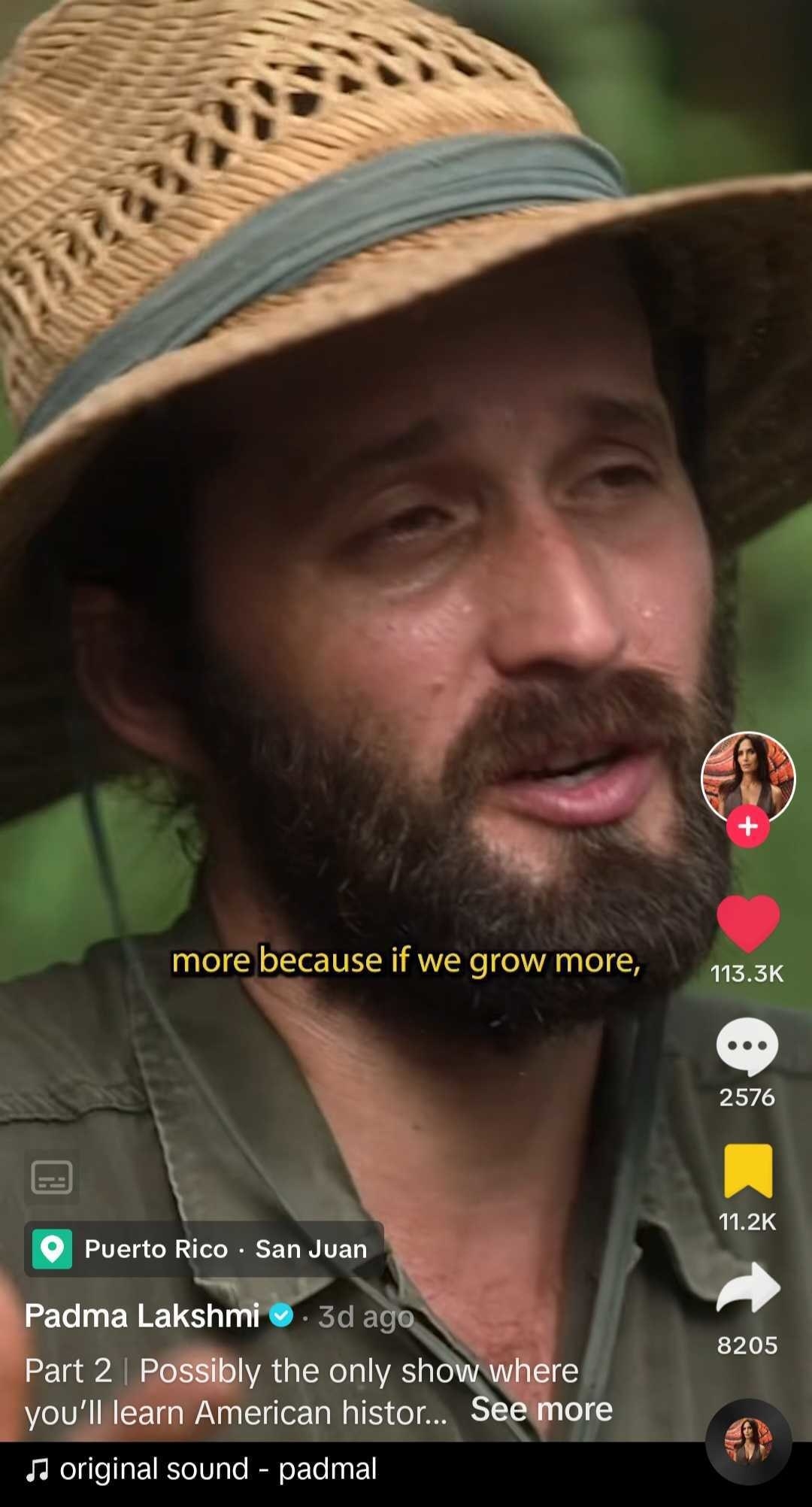A few days ago, Padma Lakshmi shared a clip — aptly titled “America’s Ridiculous Tax on 🇵🇷 Food” — from an episode of her travel and food docuseries, Taste the Nation, on TikTok, where it quickly went viral. In the clip, Padma explains why “most goods entering Puerto Rico must make a pit stop in Florida” first, resulting in “grocery prices in Puerto Rico [being] 25% higher than on the mainland.”
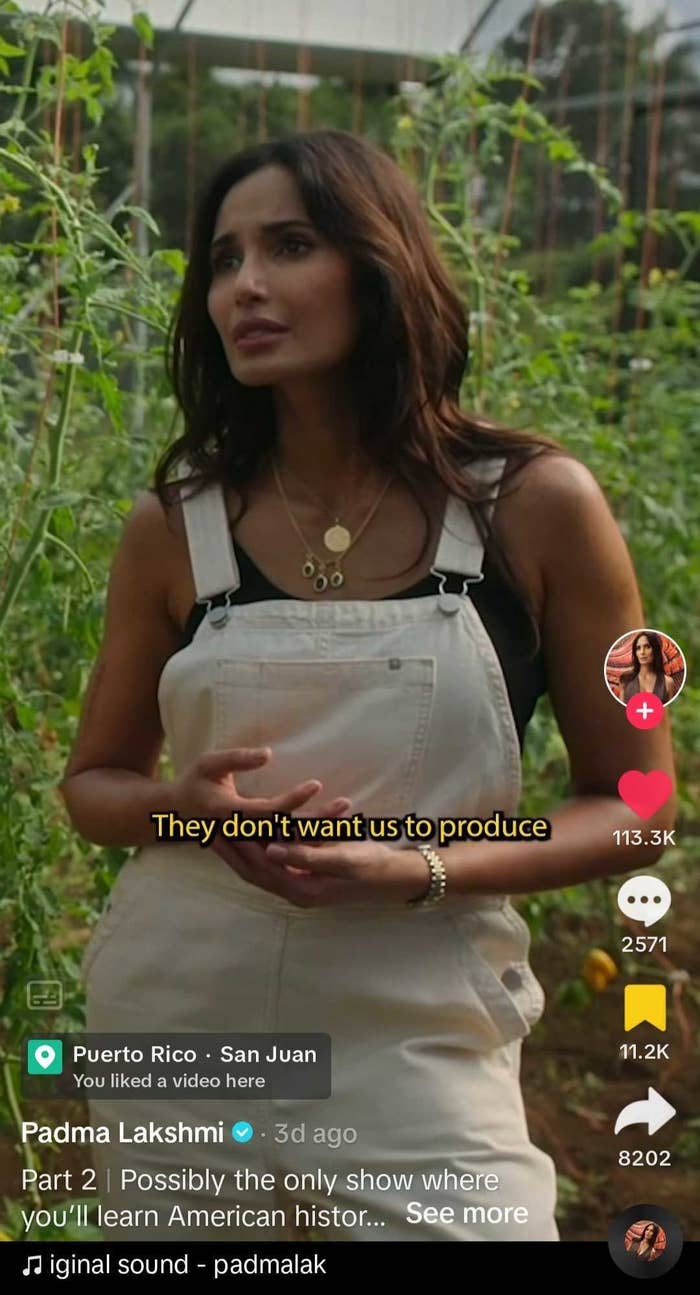
If you haven’t yet seen it, Taste the Nation (which recently returned for Season 2 on Hulu) follows Padma as she travels around different places in the US and learns about specific foods and cultures. In the second season’s premiere, Padma visits Puerto Rico — somewhere she wanted to feature on the show in particular because, as she told USA Today, many people don’t know that the Caribbean island is part of the US.

Since its posting, the TikTok has amassed nearly 1 million views and more than 100,000 likes while generating more than 2,500 comments — the top of which express outrage, draw comparisons to Hawaii, and thank Padma for educating them.
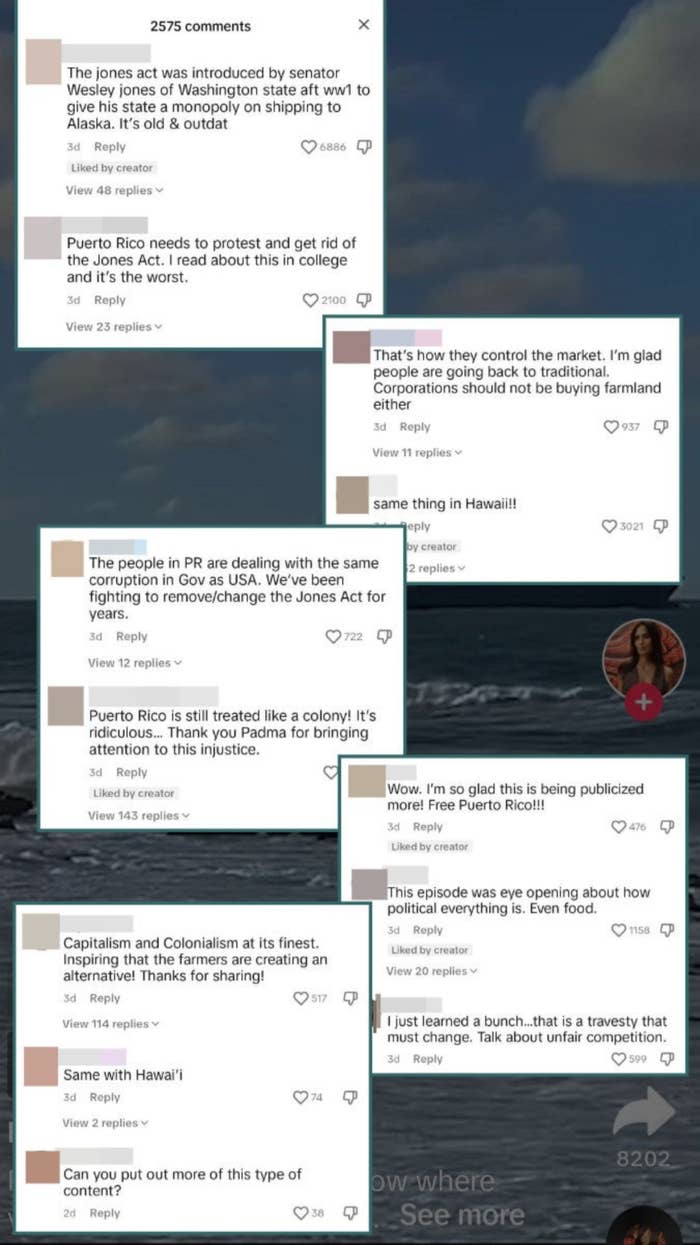
As Padma explains in the clip, groceries in Puerto Rico cost 25% more than in the contiguous 48 states because of the Jones Act — or, more specifically, Section 27 of the Merchant Marine Act of 1920. (It’s often called the Jones Act because it was sponsored by then-senator Wesley Jones of Washington.)
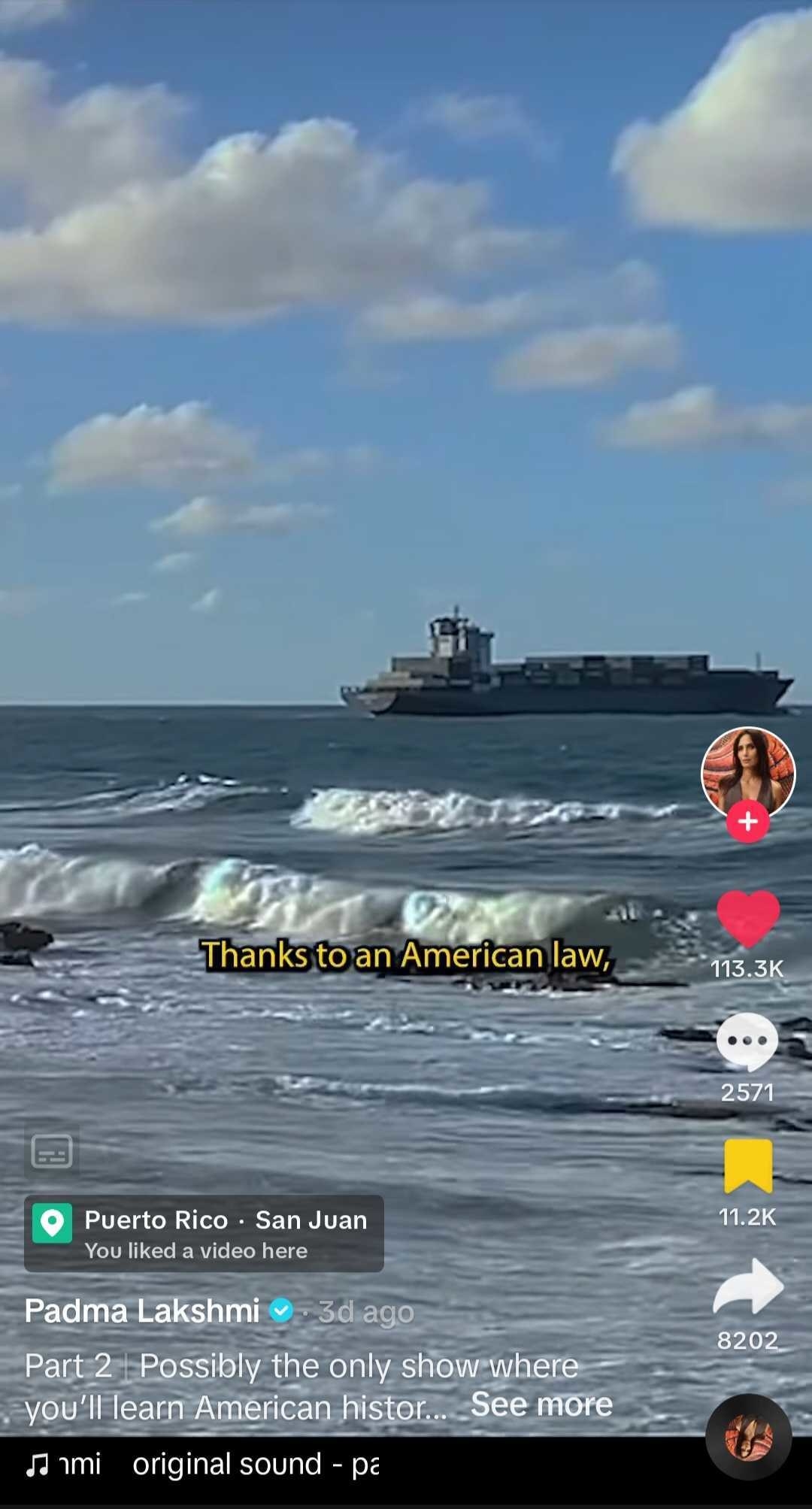
You may have heard of the Jones Act before — the G.W. Bush, Obama, Trump, and Biden administrations have all temporarily waived it at some point to speed up shipments during high-profile, special circumstances (like hurricanes Katrina, Sandy, and Harvey, respectively). Essentially, it mandates that goods shipped between US ports (as in by water) must be transported on US-built and US-owned ships that are crewed by US citizens or permanent residents.
When the act is temporarily waived, foreign ships are allowed to carry goods to Puerto Rico from US ports. For instance, the Biden administration temporarily waived the Jones Act to allow non-US ships to transport fuel to Puerto Rico when the island faced a diesel shortage after Hurricane Fiona, which caused widespread power outages and flooding.
FYI, this Jones Act shouldn’t be confused with the Jones-Shafroth Act of 1917 (also sometimes called the Jones Act for short), which grants US citizenship to anyone born in Puerto Rico.
For context, the Jones Act was put into effect two years after World War I. Because the US had to send (a lot of) troops and equipment to Europe, it had to requisition many of its own ships for wartime deployment. This left many nonmajor ports empty, causing the US to depend on foreign vessels for shipping. So by maintaining its own shipbuilding industry through the Jones Act, the US would theoretically have enough ships (with American crews) available in times of war or emergencies.
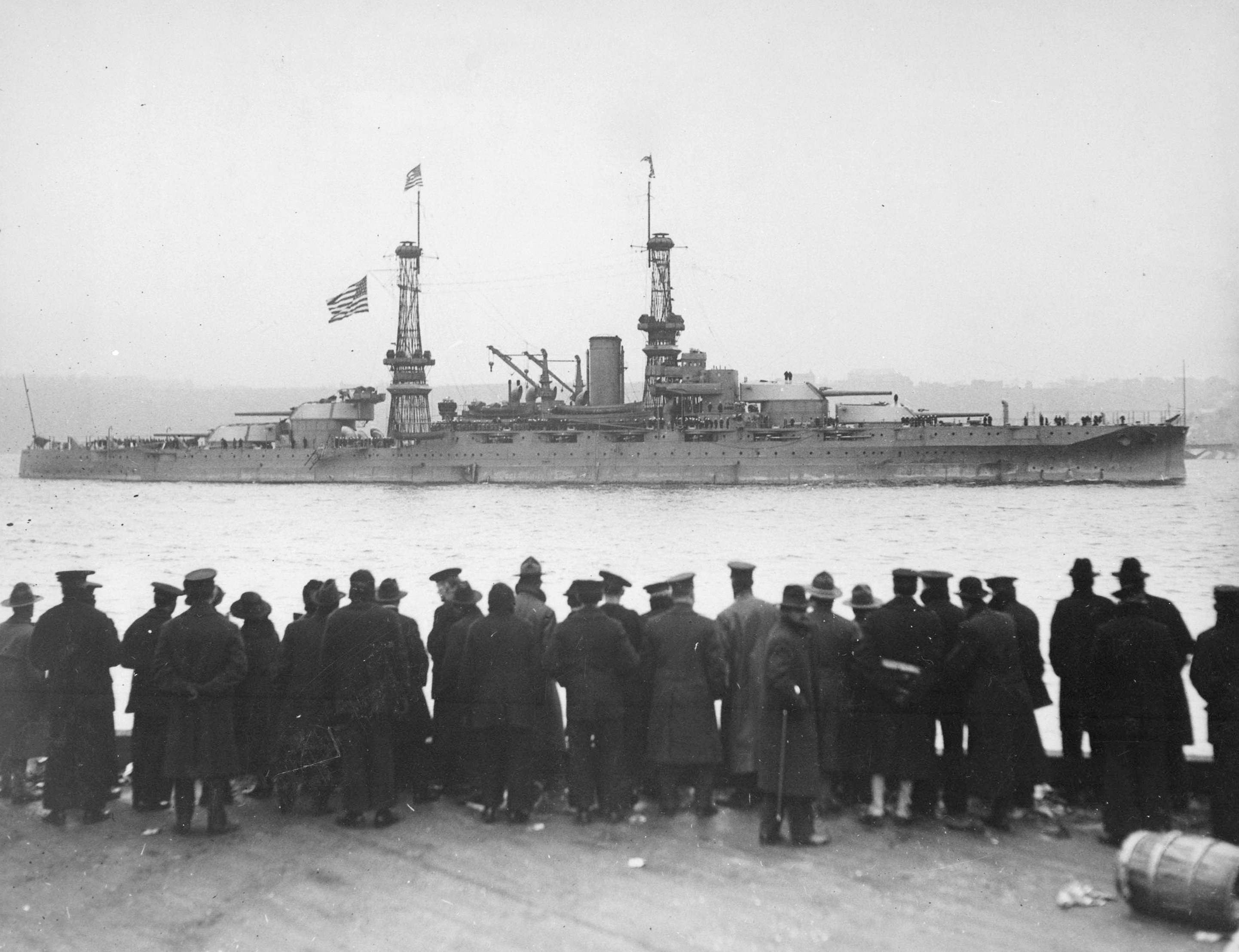
So instead of making a pit stop in Puerto Rico to drop off and pick up goods on the way to the contiguous US, foreign ships typically drop off goods for Puerto Rico in Florida, as Padma points out. From there, US ships take over and bring the goods to Puerto Rico. If foreign ships did drop off and pick up goods in Puerto Rico on the way to the US, they’d violate the Jones Act by transporting goods between two US ports.
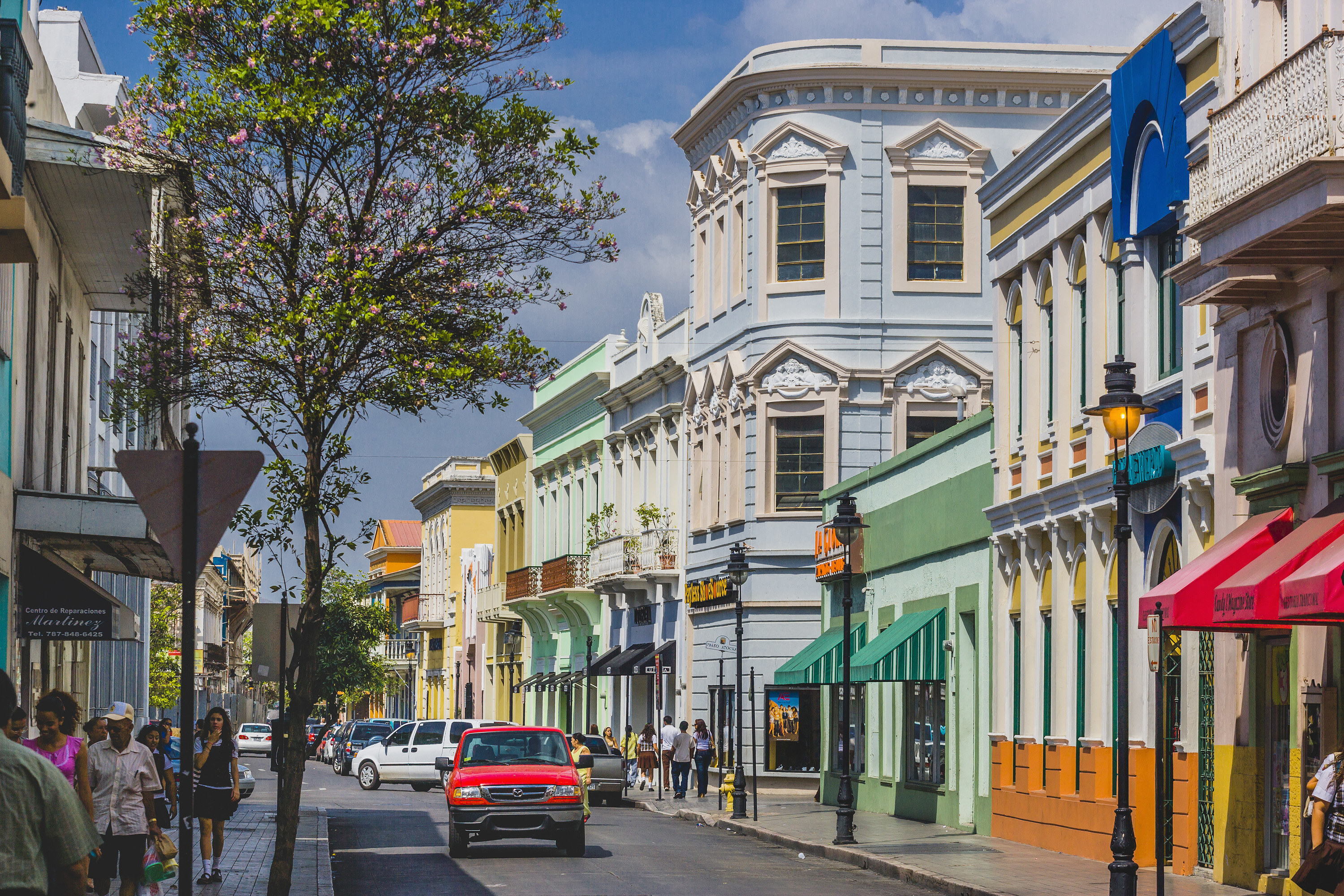
Because Puerto Rico is an island, nearly all goods must be imported, and the Jones Act can raise consumer prices relative to those in the contiguous states. And as Padma acknowledges, goods leaving Puerto Rico for other US states or territories are also impacted, inflating the cost of exports and “making them simply too expensive to compete with those from other countries.” As a result, Puerto Rico suffers from unnecessarily high prices and little investment in agriculture, despite its fertile land. “It’s absurd,” Padma says.

In the clip, Padma also speaks with a Puerto Rican farmer named Ian who she says is taking matters into his own hands and tells her, “They don’t want us to produce more because if we grow more, we are going to buy less.” He then explains that Puerto Rico has enough land and young people who are interested in farming but don’t know how to do it. His solution? Educating the people.
While speaking about the episode, Padma stressed that Puerto Rico can’t grow food on a large scale and that it — along with the act of eating itself — is a very political issue. “The choices we make when we buy our food and feed our families, it's political,” she said. “It’s an economic decision. It’s, of course, a culinary and an economic decision, but it's also political. How you spend your money is really important.”
